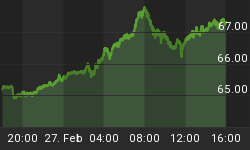
Special Guest: Guillermo Barba is a Mexican economist and financial blogger writing for Forbes Mexico. Barba is a follower of the Austrian school of economics.
Published 07-23-15
24 Minute Video
A Mexican Economist, Guillermo Barba never heard of the Austrian school of economics until after graduating. Mexican University teaching still focuses on Marxist philosophy and Keynesian thinking. His subsequent exposure to the Austrian school of Economics was an eye opener which started him on a road which he hopes to help others in Mexico and Latin American become exposed to. He believes that the socialist thinking which South American universities are still oriented towards is one of the cancers in the world and hurting economic development.
"I became a real economist after I met the Austrian School of Economics!"
"The Austrian School has a framework to explain the current 'economic mess' in the world today!"
Barba's popular Mexican blog is focused on financial intelligence because he felt the truth was not being told and it needed to be.
Financial Repression
"Mexicans know perfectly what Financial Repression means! Living in Mexico means living in the neighborhood of the United States of America. That is a lot of financial repression!"
"The entire world is suffering from Financial Repression because there are Financial Repressors. That is the problem. Who are those financial repressors? As Hugo Salinas Price told him, the entire world is controlled by a group of about 1000 people and a smaller core group control most of the decisions. Most of them are bankers"
Barba believes that the global reserve system which is based on the US dollar "is basically a scam". According to Barba, to keep the whole system working the powers to be must get people into debt. Debt must grow exponentially.
Importance of Savings
"Pushing people to spend and taken on debt versus savings is insane! Savings is the base and the cornerstone of development. Savings are the cornerstone of capital! The world needs capital accumulation, not debt accumulation!
"Debt accumulation is not sustainable. Capital accumulation is sustainable!"
Guillermo Barba believes the powers to be simply don't know what to do other than just 'print more money'. He also sees the US dollar getting much, much stronger as people generally won't know what to do to protect their wealth. This will offer opportunities to use inflated US dollars to buy real estates at attractive prices.
..... there is much more in this interview on the Mexican and South American economies.















